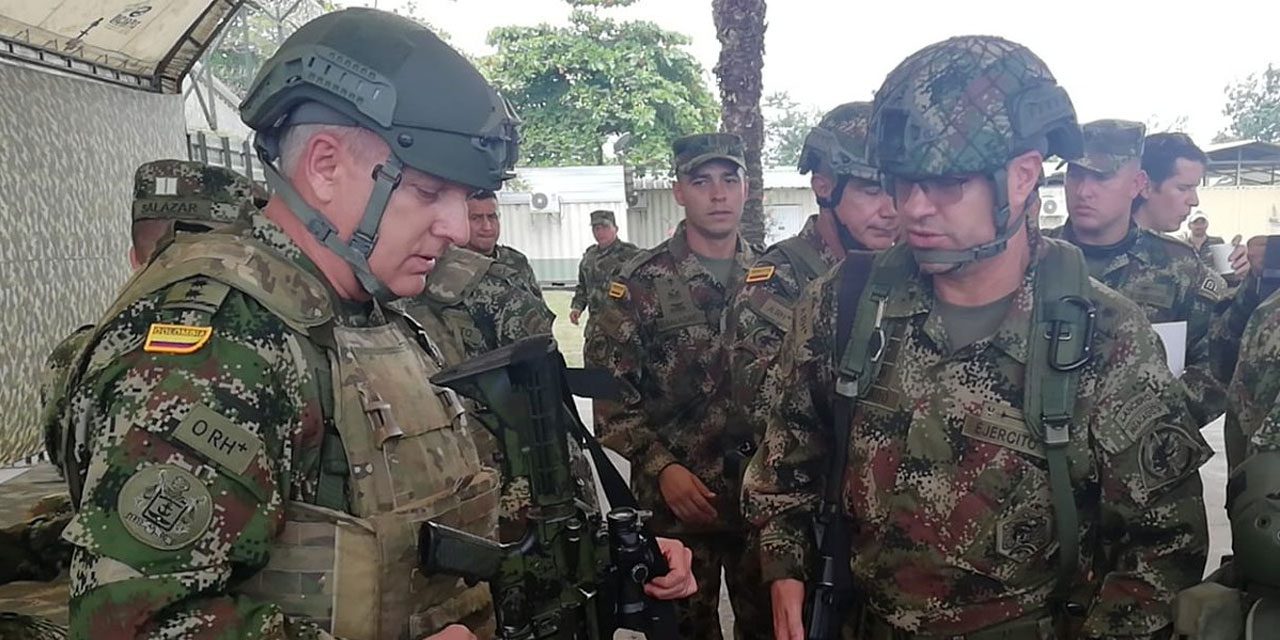Colombia’s top military commander on Tuesday refused to confirm President Ivan Duque’s claim that FARC dissident leader “Guacho” was seriously injured in a military operation.
Armed Forces commander General Alberto Jose Mejia made the statement while visiting the southwestern Nariño province to inspect efforts to capture the former FARC guerrilla, who is wanted in both Colombia and Ecuador.
“We cannot confirm nor deny if Guacho was injured,” said Mejia after visiting the location where the president and Defense Minister Guillermo Botero on Saturday claimed Guacho was shot in the back twice by a special forces sniper.
Duque said Saturday that “we have information that … Guacho was injured this morning.”
Colombia’s most-feared FARC dissident injured in military operation: Duque
General Alberto Jose Mejia
The general’s refusal to confirm government claims comes amid all kinds of contradictory reports regarding the manhunt for the former FARC guerrilla that controls large parts of Colombia’s most important coca-growing area.
While newspaper El Tiempo reported that the military had deployed 2,000 soldiers to catch Guacho, the Armed Forces’ website said that 4,000 men and women are engaged in the manhunt.
Colombia’s leading newspaper selling propaganda as news: report
The massive manhunt has been dubbed “Operation Anguila” and is concentrated in the border municipality of Tumaco and the neighboring Roberto Payan, according to the military.
General Alberto Jose Mejia
Guacho has been terrorizing the southwest of Colombia and the northwest of Ecuador ever since he abandoned the country’s peace process and began vying for control over Nariño’s coca fields with rival armed groups like the ELN and the AGC.



